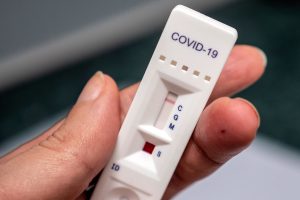Over the past decade, physical fitness in Hong Kong has seen notable improvements. However, according to a recent government survey, more than half of the city’s population still falls short of achieving adequate exercise, with many residents grappling with obesity.
Fitness Improvements but Lingering Health Concerns
The results of the survey, released on Friday, indicated a positive shift in most physical fitness parameters across various age groups. These improvements are compared to a similar survey conducted approximately ten years ago. Adults, aged between 17 and 79, displayed better cardiovascular endurance and muscular strength, and a similar uptick was observed among children and adolescents.
Professor Stanley Hui Sai-chuen, from the Department of Sports Science and Physical Education at the Chinese University, linked these improvements to a growing awareness and enthusiasm for sports. He attributed this trend to the success of Hong Kong athletes in international competitions and improved government efforts to promote exercise.
Majority Still Fails to Meet WHO’s Recommended Exercise Level
Despite these promising developments, the survey findings also highlighted significant health challenges. More than half (53.8%) of the adult respondents failed to meet the World Health Organization’s (WHO) recommended level of physical activity, which is at least 150 minutes of moderate to vigorous physical activity per week. Among children and adolescents, two-thirds and half, respectively, also fell short of the WHO’s recommended daily exercise level.
Obesity and High Blood Pressure Remain Prevalent
The survey also spotlighted the city’s ongoing struggle with obesity. The WHO’s body mass index categorized over one-third of male and one-fifth of female respondents as obese. About a third of children and over a quarter of adolescents were overweight or obese, alarmingly.
High blood pressure affected more than three in 10 men and over one in five women, aged 17 to 79.
Preferred Exercises and Challenges to Adequate Exercise
When it came to preferred forms of exercise, adults commonly chose ball games, running, and walking. However, they cited lack of time and fatigue as the primary barriers to regular physical activity. For children and adolescents, preferred activities included ball games and swimming. Also bad weather, tiredness, and excessive schoolwork are listed as major hindrances to exercise.
Future Actions to Encourage More Exercise
To tackle these issues and encourage a more active lifestyle among residents, the survey team suggested several strategies. These include enhancing public knowledge of WHO’s recommended physical activity levels through education and promotion. It also includes advocating for regular self-assessment of exercise and fitness levels.
The survey team urged the authorities to develop guidelines for simple, home-based exercises. They also pushed for promotion of family-oriented fitness activities, and increase the availability of fitness equipment in public parks.
Notably, the associate head of the Education University of Hong Kong’s Department of Health and Physical Education, Lobo Louie Hung-tak, voiced concern over the alarming rates of child obesity. He warned that this could translate into serious societal problems in the future. This is due to the high medical costs associated with obesity and its link to chronic illnesses like high blood pressure and diabetes.
Louie emphasized the need for a concerted, interdepartmental effort to promote a healthy lifestyle across all age groups, which should include exercise, diet control, and quality sleep.
In conclusion, Hong Kong has seen improvements in physical fitness over the past decade. However, a significant proportion of its population still struggles with insufficient exercise and obesity. This highlights the need for more effective strategies to promote an active lifestyle and address the persistent health issues associated with sedentariness and obesity.














